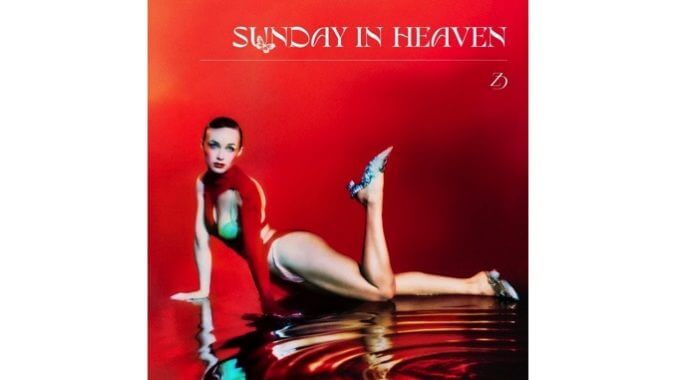Zella Day Leaps Forward on Sunday in Heaven
The singer/songwriter’s sophomore effort is a powerful declaration of creativity and personal truth

Sunday in Heaven, Zella Day’s first new solo album in seven years, promised to be a bold and stirring project before it was officially released. In June, she released the single “Radio Silence,” which detailed the musician suffering an ectopic pregnancy. The captivating nature of Day’s sultry voice can convince listeners of anything. In this instance, she advocated for women’s rights by sharing that song the same day that the Supreme Court reversed Roe v. Wade.
In an emotional interview with Alternative Press, Day explained: “At the time of writing [“Radio Silence,”] I could have never guessed that this would actually be the reality that we’re standing in today. I’m really grateful that the song has come at a time where it can contribute to the allyship.” It also shows the complexity and introspection of which the artist is capable at just 27 years of age.
The impassioned pleas on Sunday in Heaven opener “Mushroom Punch” show how desire can be painfully mitigated by self-awareness. Despite desperately wanting to be with her lover, she knows what a seemingly useless and obsessive cycle their relationship has become. Day also sings about using different substances to help cope with the pain: “And I drink too much and think too much, no self-control / I’m gonna mushroom punch my way down the rabbit hole.”
The robust disposition of the record also displays Day’s immense growth in her craft. A large part of this is due to contributions from Cage the Elephant producer Jay Joyce, as well as Alex Casnoff and John Velasquez. However, it is also because the singer is more willing than ever to take risks. That dedication can be heard on the folksy and pulsing rhythms of “Am I Still Your Baby.”
It is also palpable in the disco-inspired rhythms and intonations of “Dance for Love,” which is one of the best moments on the album. Its light and airy feel easily make it dance-floor gold; Day’s warm vocals make the track even more irresistible. The same can be said for “Golden,” which is slower-paced, but is still saturated with rich instrumentation.
-

-

-

-

-

-

-

-

-

-

-

-

-

-

-

-

-

-

-

-

-

-

-

-

-

-

-

-

-

-

-

-

-

-

-

-

-

-

-

-








































